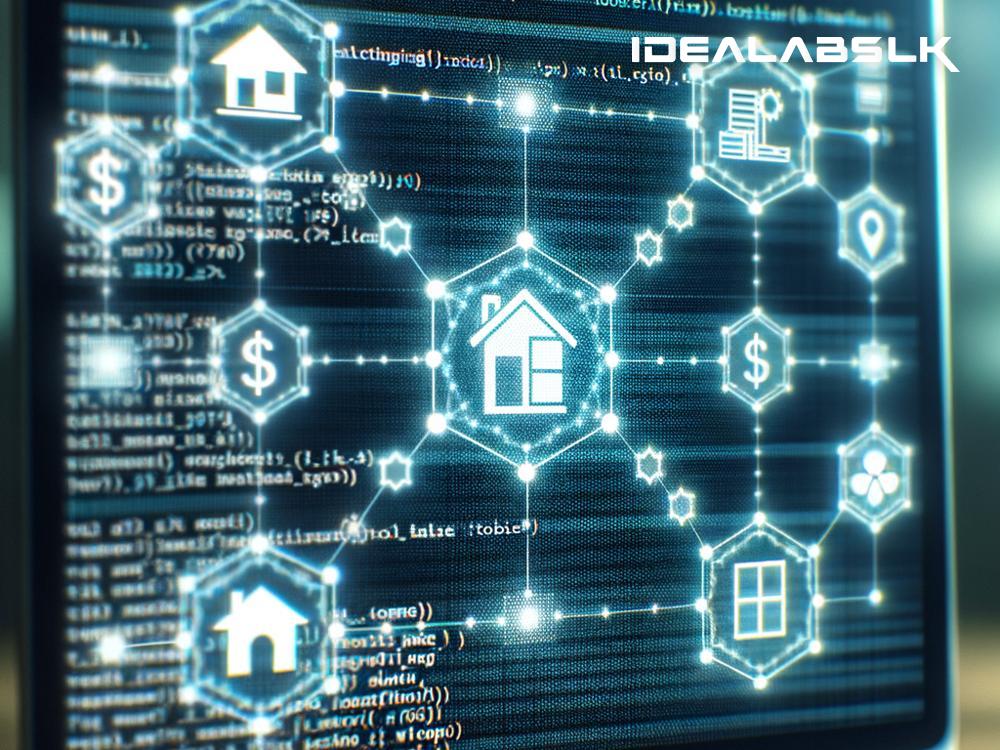The Future of Real Estate Ownership: Understanding Blockchain's Role in Property Tokenization
In the ever-evolving world of real estate, the term 'blockchain' is becoming increasingly familiar. Many of us have heard about it in the context of digital currencies like Bitcoin, but its applications extend far beyond that, particularly into the realm of real estate property tokenization. This might sound complex, but let's break it down into simpler terms to understand what this means and how it's set to revolutionize the way we buy, sell, and invest in properties.
What is Blockchain?
At its core, blockchain is a kind of digital ledger technology. Imagine a book where you record every transaction or agreement. Once written, the information cannot be erased or altered without leaving a trace. Now, place this book on a network of computers across the world, where anyone can see the transactions, but no single person controls the book. This is the essence of blockchain - a decentralized, secure, and transparent way of recording transactions.
Understanding Property Tokenization
Tokenization, in the context of real estate, is the process of converting the value of a property into digital tokens on a blockchain. Think of each token as a piece of the property puzzle - owning a token is akin to owning a part of the property. These tokens can be bought, sold, or traded, much like stocks in the stock market, but instead of companies, you're dealing with real estate.
The Role of Blockchain in Property Tokenization
1. Democratizing Real Estate Investment
One of the most exciting aspects of property tokenization through blockchain is that it opens up real estate investment to more people. Traditionally, investing in real estate required a substantial amount of money upfront, limiting this investment opportunity to the relatively wealthy. However, with tokenization, investors can buy tokens representing a fraction of a property, reducing the minimum investment required and allowing people with smaller budgets to participate in real estate investment.
2. Improving Transparency and Security
Real estate transactions can be murky, with heaps of paperwork and a lack of clarity about the true ownership and history of properties. Blockchain's inherent transparency and immutability can significantly mitigate these issues. Each transaction recorded on a blockchain is visible to all participants and cannot be changed once confirmed. This means better security and transparency in ownership records, transaction history, and more, resulting in increased trust among all parties involved.
3. Streamlining Transactions
Buying or selling real estate is known for being a time-consuming process, fraught with delays due to paperwork, verification processes, and intermediaries like banks and lawyers. Blockchain can streamline these transactions by automating many of these processes through smart contracts. These are self-executing contracts with the terms of the agreement directly written into code, which automatically enforce and execute the terms of agreements. This can significantly reduce the time and cost involved in real estate transactions.
4. Facilitating Global Investments
Blockchain and property tokenization make it easier for investors to engage in cross-border transactions. Since tokens are digital and the blockchain operates globally, investors can buy into foreign real estate markets without the convoluted process that traditionally accompanies international property investments. This opens up a world of opportunities for both investors and property sellers.
Challenges and Considerations
While blockchain in real estate property tokenization offers numerous benefits, there are challenges to consider. Regulatory hurdles are a significant concern, as governments and financial authorities worldwide are still grappling with how to manage and regulate blockchain and tokenized assets. Additionally, the real estate industry is traditionally conservative, and widespread adoption of blockchain technology may face resistance from established players.
Looking Ahead
The role of blockchain in real estate property tokenization is poised to grow in the coming years. As technology matures and regulatory frameworks are developed, we can anticipate more properties being tokenized and more investors entering the market. This could lead to a more inclusive, efficient, and transparent real estate market, benefiting investors, property owners, and buyers alike.
In conclusion, blockchain and property tokenization present an exciting new frontier in real estate, making investment opportunities more accessible, transactions more efficient, and markets more transparent. As we move into the future, the integration of these technologies into the real estate sector will likely become more prevalent, changing the way we think about property ownership and investment.

